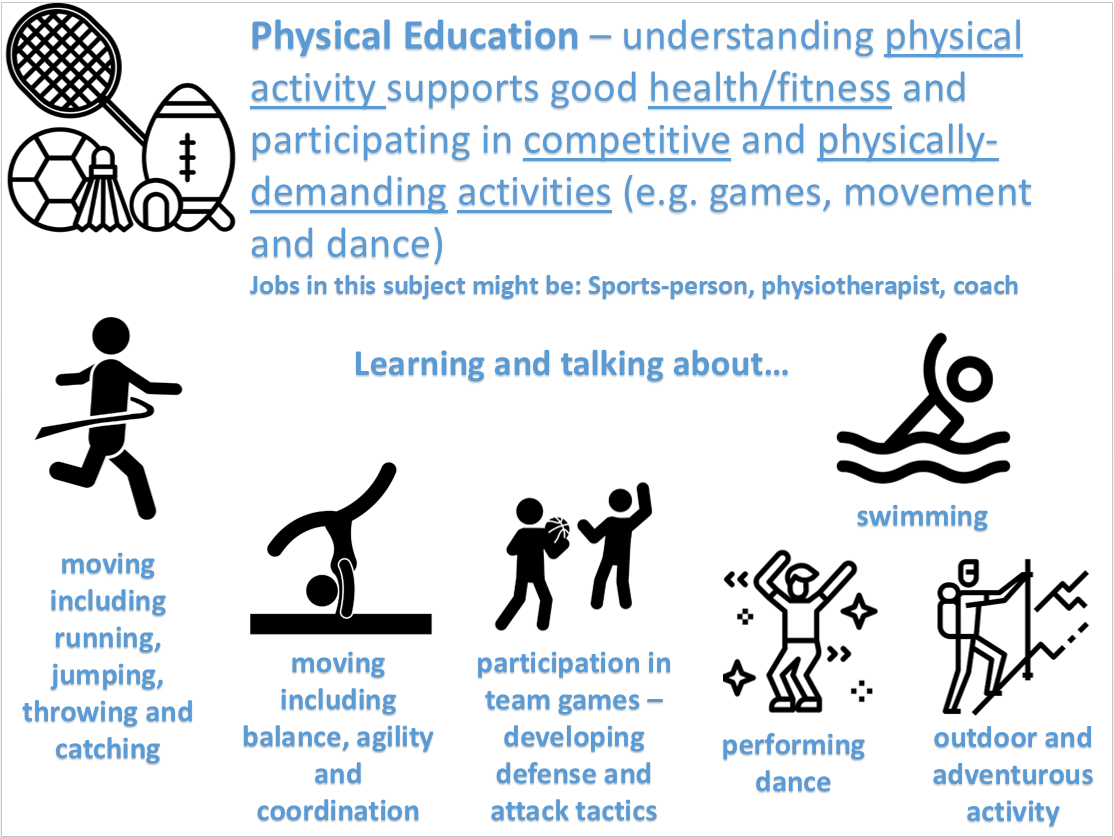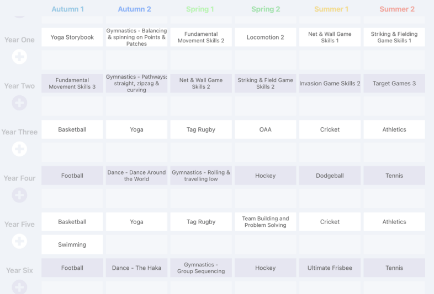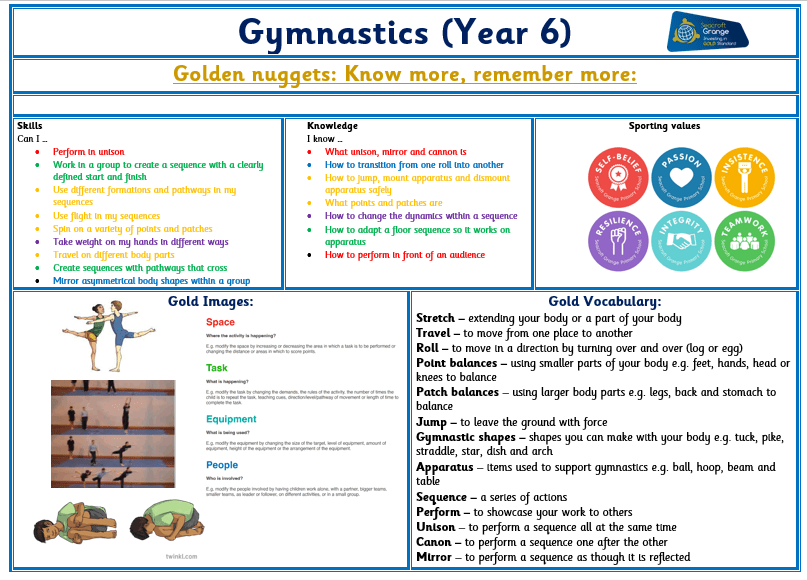PE
Planning can be found on the Curriculum front page. Please use the menu to navigate to this page. Alternatively - click here
Our vision is to inspire all children to skilfully participate and demonstrate sporting values that lead to healthy and active lifestyles.
Intent
- To inspire children to realise their full potential and develop a life-long interest in participating in physical activity and sport no matter what their perceived ability in PE.
- To develop competence and confidence, by teaching fewer sports in greater depth, so that children can excel in a range of physical activities – including swimming.
- To ensure that children understand the importance of leading healthy and active lives and that as a school we are champions of this by ensuring they are physically active for long periods during school time.
- To maximise participation outside of the PE curriculum, by ensuring that children of all abilities are provided with the opportunities to be involved in extracurricular activities and competitive sports.
- To use physical activity and sport as a vessel for developing character and embedding key values such as fairness, teamwork, leadership and respect.
- The long-term PE curriculum plans for each year group can be located on the Primary PE passport.
As of September 2022, the curriculum has been redesigned so that – in line with OFSTED guidance – fewer sports are being taught in greater depth. In the long-term, ensuring motor competence through the development of fundamental movement skills in early years and throughout KS1. This will give children a solid foundation from which they can then excel in the range of sports planned in KS2.
- Each class has two dedicated timeslots allocated to them per week for PE. The first lesson should focus on the teaching and development of key skills and knowledge, the second (Golden Games) will provide all children with opportunities to build character, work collectively as a team, compete against one another in competitive games and improve their overall fitness and core strength. Golden Games will prepare and support children to lead healthy and active lifestyles along with making positive choices for their future mental and physical well-being.
- SPIRIT is at the heart of all PE lessons with teachers and children modeling and discussing these values throughout. At the end of every PE lesson, the plenary should reward specific children for displaying each of these values.
- SPIRIT stands for: Self-belief, Passion, Insistence, Respect, Integrity and T These are the core values of sportsmanship. Children should be celebrated for demonstrating the values needed to be successful sportspeople.

- PE lessons follow the STEP framework to support all children. Considerations should be made to:
- Space by making the area bigger or smaller.
- Timing – e.g. if struggling to throw a soft javelin or soft discus could they throw something else?
- Equipment by for example choosing a larger or softer ball or smaller ball
- People – alter teams to make it more/less competitive
- Children will be taught swimming in year 5. Lessons will focus on building children’s confidence in the water. Children will learn how to perform a range of strokes and use these to swim competently. Children will learn the importance of water safety and how to perform self-rescue in a range of scenarios.
Impact
- Children will understand the importance of physical activity so that they can lead happy and healthy lifestyles.
- Children will know how to be active participants in physical activity both as team players in competitive sports and in activities that improve their overall strength and fitness.
- Children will be physically active for a sustained period of time as part of PE lessons, in break and lunchtimes and in extracurricular clubs.
- Children will be equipped with sporting values allowing them to participate in team games.
- Teachers will build on skills taught across phases to allow children to develop their knowledge of moto competence, rules strategies and tactics.
- Children will be equipped with the knowledge and skills needed to participate in physical activity.
By the end of KS2, in swimming, children will:
- understand water safety
- Know how to swimcompetently, confidently and proficiently
- know how to perform a range of strokes
- know how to perform safe self-rescue.
Knowledge organisers
Knowledge organisers allow teachers to adapt units from the Primary PE Passport so that teachers know what new knowledge and skills children are being taught, and how these skills progress. Sporting values are highlighted and teachers understand which of these to focus on each lesson so that opportunities to praise, challenge and reflect can be carefully planned across a unit.
Sports premium
The sports premium plan outlines how spending has impacted children across school and can be found on the Statutory Information page of our website.
Moresdale Lane, Seacroft, Leeds, LS14 6JR
0113 2605385
office@seacroftgps.org.uk




